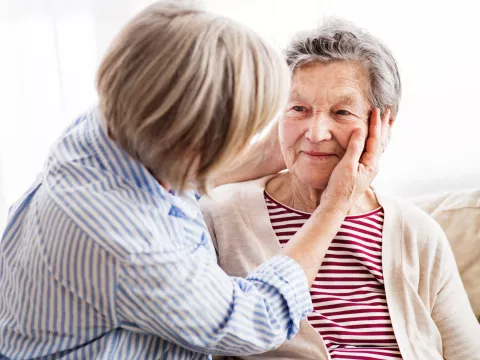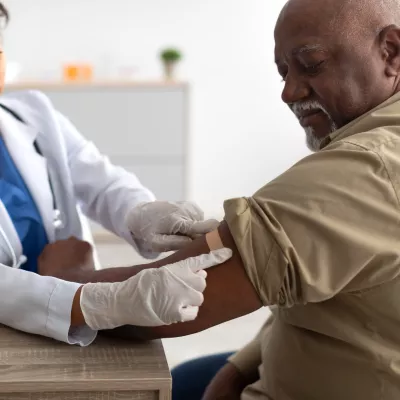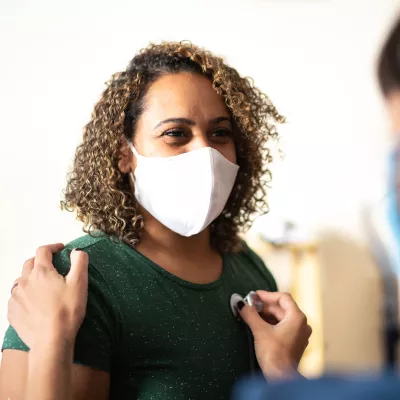- AdventHealth

Strokes happen when an artery in the brain is either blocked (ischemic stroke) or starts bleeding (hemorrhagic stroke). Before you think “It will never happen to my loved one,” you should know that according to The Centers for Disease Control and Prevention, someone in the United States has a stroke every 40 seconds — that’s 795,000 each year.
Recognizing stroke signs and acting quickly can help prevent permanent brain damage, and save your loved one’s life. We’re here to arm you with the important do’s and don’ts should you be faced with acting fast to protect your loved one’s life.
3 Do’s
Do Act F.A.S.T
So how do you know if your loved one is having a stroke? F.A.S.T. is an easy way to remember the sudden signs of stroke. F.A.S.T. stand for:
- Face drooping
- Arm weakness
- Speech difficulty
- Time to call 911
At the first sign of any of these symptoms, call 911 immediately to get help for your loved one right away. Every second matters.
Do Give CPR
If your loved one is unconscious and not breathing, administer CPR until the paramedics arrive. If you aren’t confident in your ability to give CPR, your 911 operator will stay on the line with you and talk you through it.
Do Keep Track of Details (When You’re Able)
Make a note of the time stroke symptoms began, and of the specific signs you witnessed. The more detailed the information, the better. Helping medical responders and emergency physicians determine what type of stroke your loved one is having, and how long ago symptoms began, can help them quickly determine a life-changing or life-saving course of action. Certain treatments can help stop or reduce stroke effects if given within the right time frame.
Tissue plasminogen activator (tPA), for example, is a clot-busting medicine that can reverse or stop stroke if given within 4.5 hours of the start of symptoms.
Some endovascular treatments for ischemic stroke are also effective if provided within 24 hours of the start of symptoms.
3 Don’ts
Don’t Ignore Symptoms of Stroke or Delay Calling 911
Even if symptoms seem to go away or your loved one insists they feel fine, you should call for help right away.
Don’t Give Aspirin
Do not give aspirin (or any other medications) to someone with stroke symptoms. Most strokes are ischemic (an artery in the brain is blocked), but if your loved one is having a hemorrhagic stroke (brain bleed), aspirin will make it bleed more.
Don’t Drive Your Loved One to the Hospital Yourself
Even if you feel fine, if your loved one is in danger, you’re stressed and not in a good condition to drive. And, time is of the essence. Always call 911 so a trained medical team can come to you.
The best way to reduce the risk of long-term side effects from stroke is to get fast and accurate treatment. The quicker you seek treatment when your loved one is having a stroke, the better chance they have of recovering. If a person shows any stroke symptoms, call 911 immediately.
Learn How to Stop Stroke Before It Starts
Recognizing the signs of stroke and knowing how to act F.A.S.T. can be life-changing or life –saving for your loved one. While we hope a stroke never affects someone that you love, it’s important to be prepared for any medical emergency by knowing where to go.
Locate your nearest AdventHealth ER.



